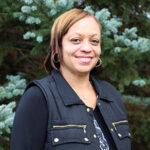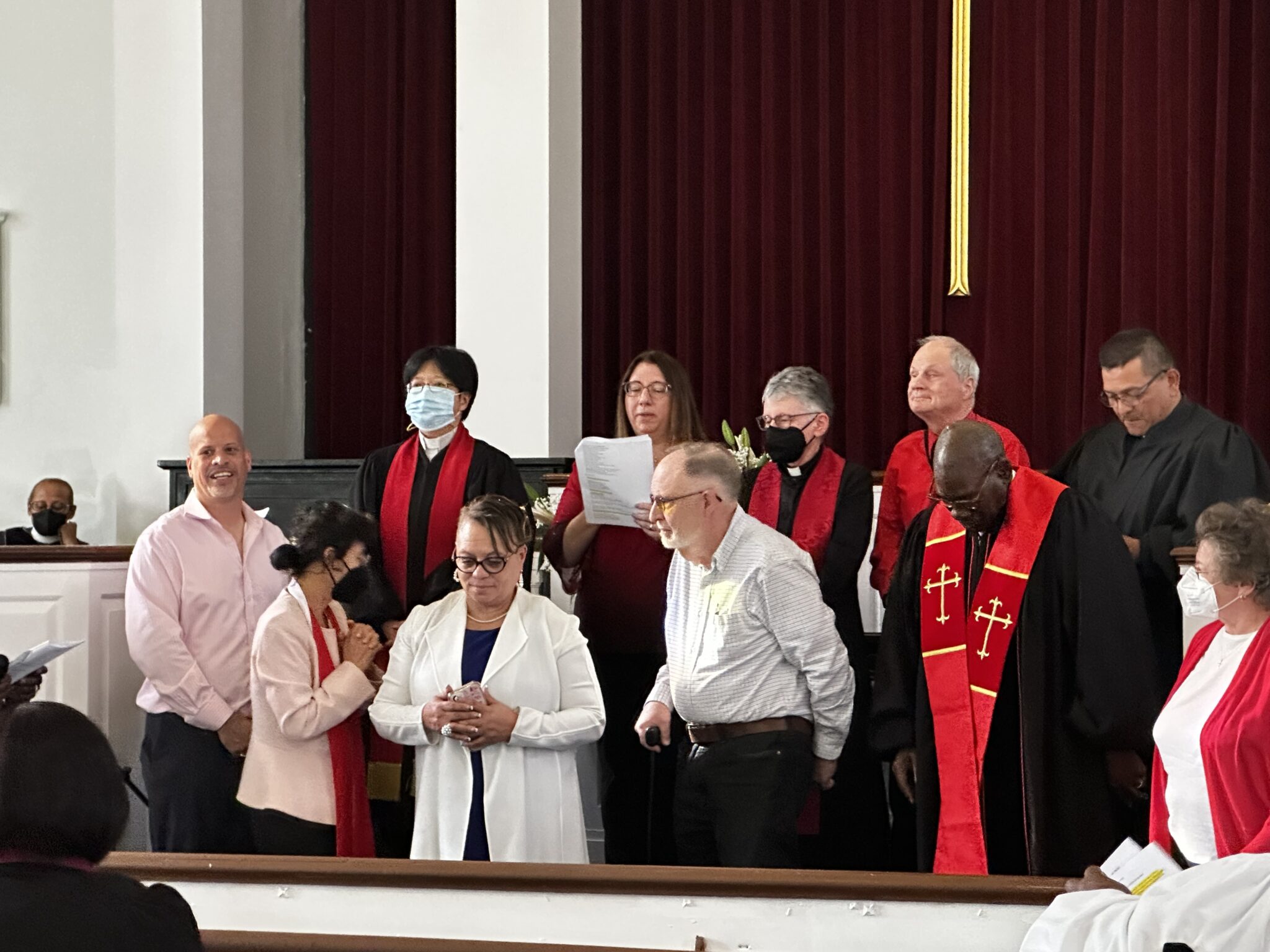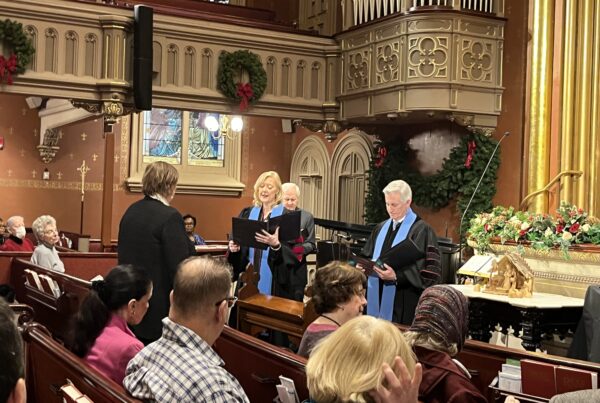I was baptized as an infant in the Reformed Church in America and had a few pastors tell me, beginning at age 13, I had a ministerial calling on my life. I actively participated in the life of the church until I got married and my family grew. I reduced serving in multiple ministries because having a full-time job and wanting more time to focus on my family were absorbing my energy.
After a couple of years, I felt like something was still missing in my life. An elder from my local congregation informed me about a position available with the Reformed Church in America (RCA) in New York City. I applied and was hired to work in the General Synod offices; working for the denomination, coupled with my local church, eventually led me to New Brunswick Theological Seminary.
I always felt that I was meant to serve people but more in a one-on-one kind of setting. I preached my first sermon at the age of 21 and did the welcome and announcements during worship services for about eight years. I was excited to serve in this manner and did it with grace and honor, but pastoring, I thought, “absolutely not.” I observed pastoring as being very stressful and political.
I began to feel called to something outside of the church building and started to look for volunteer opportunities. I found a program sponsored by the Visiting Nurse Program of New York and the American Cancer Society called “The Wig Program.” They had wigs available for women who have experienced hair loss because of chemo treatments. I would visit women in their homes and would have about four wigs for them to try on and I would assist them. Being a Christian was not a criteria, but the conversation, tears, and prayers I had with most of these women I still carry with me today. The program ended because of budget cuts, I believe, but it was what I needed to get me seriously thinking about seminary.
The first time I attended seminary was 2010–2012. Being in seminary seemed surreal. The fear was real and I wondered if I could do it. My pastor kept encouraging and so did my supervisor at the RCA. I wanted my attending seminary kept quiet until I felt comfortable with it, but that did not happen. I was at an RCA meeting of about 60 clergy people, most men, and it was announced that I was a New Brunswick Theological Seminary seminarian, and I was asked to stand. During lunch and breaks, I was asked questions about my plans; for example, if I was going to serve a congregation in New York or was I looking to be a senior pastor or associate pastor. And then I was given what felt like a ton of advice. I stopped attending seminary because I realized that I did not know what I wanted to do and felt confused as to why I was in seminary.
I will never forget this moment in October 2016. While waiting for my plane at the airport in Grand Rapids, Michigan, I heard God say to me, “It is time to go back to seminary.” I contacted the admissions office and got the process underway. I restarted seminary in January 2017, knowing that I was going to graduate and confidently be okay with not knowing the plans that God had for me. I knew I needed to be there as my first steps.
The journey to and through New Brunswick Theological Seminary was breathtaking and life-changing. My husband suddenly died in April 2018 while I was preparing for finals, Hebrew class had me in tears, COVID happened and I could not begin Clinical Pastoral Education (CPE) as I hoped (CPE is needed for chaplaincy in the RCA), and I still had my work responsibilities to fulfill. The church that I was a member of was without a pastor for a while and membership numbers decreased. Since I could not complete CPE, I committed more time to outreach at the church and agreed to preach twice a month.
A few months after graduating from New Brunswick Theological Seminary in 2021, I still had my eye on chaplaincy work, but I was asked to join the consistory and take more of a leadership role by pastoring. After praying to God for guidance and speaking to my spiritual mentor, I agreed. Honestly, while I was in seminary, my focus was not congregational ministries, but God knows what is best. I once read, “If you want to make God laugh, tell God your plans.”
Now that I have been ordained as a minister of Word and sacrament and installed as a pastor at the age of 57, I see most of my adult life as being “co-vocational.” It is a term that I recently learned and use to describe all ministry work as being connected. Being a pastor is not solely about a degree but about the position of your heart and how the other ministries in your life connect to your heart. Being co-vocational is rewarding but also has challenges. My work as a pastor does not replace my work at the RCA serving as the coordinator for the Retiree Chaplains and Assistance Programs. These roles connect in a way in which I can serve from my pastor’s heart.
Let me say this: it is not easy being co-vocational. I attended a conference where pastors talked about future full-time pastoral ministry as being unrealistic. Since COVID, many church budgets cannot afford full-time pastors; therefore, many pastors will have to look for other sources of income.
I speak from a co-vocational context of a church in New York City that has been struggling for a while and is looking to do ministry with Jesus as its guide. Being a pastor of a church that is rethinking its mission and working on staff at the RCA is a blessing, but it is a challenging reality as the church’s budget, at this time, cannot afford a full-time pastor. God has called me to this church and by being co-vocational, I must rely on God to help me set my priorities and also on the wonderful consistory that supports me living into my call and the mission and ministry of the church.
I believe God is raising up co-vocational pastors at such a time as this. “Each of you should use whatever gift you have received to serve others, as faithful stewards of God’s grace in its various forms” (1 Peter 4:10-11).

Rev. Mornier Rich
Rev. Mornier Rich is pastor of Queens Reformed Church in New York. She also serves as the coordinator for retiree chaplains and assistance programs through the Reformed Church in America’s Board of Benefits Services.



